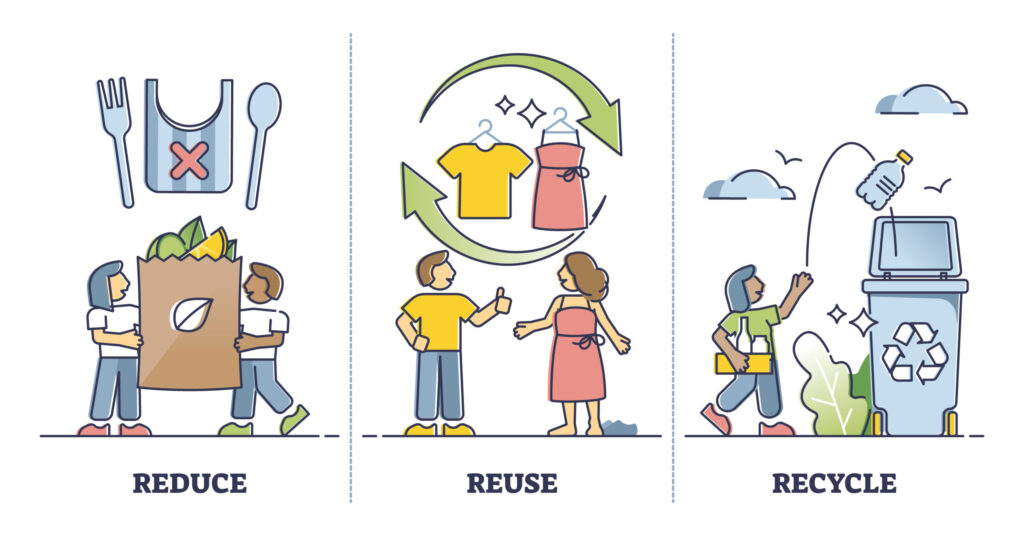Environment
Climate change – Waste
Emissions from waste make up 2% of the districts carbon footprint. Every product we buy requires energy to produce it and the journey it takes to get to you releases carbon emissions from transport. When we throw items away, they need to be collected and processed which releases further emissions especially if the items go to landfill.
Simple changes when shopping can mean you then throw less away. These practices can also save you money, free up more space in your home and mean you purchase items that last.
Reducing waste
- When shopping look for food with no packaging or less packaging where possible and bring your own bags to carry items home
- Replace single use items such as plastic cutlery, cups, bottles, menstrual products and nappies with reusable alternatives
- Plan meals ahead to avoid food waste and reduce your food bill
- Try to repair items such as clothing, electronics and furniture before buying something new
Reusing waste
- Where reducing consumption is not possible you can try to reuse items to extend their life. There are local organisations that reuse your items such as ECCO
- Or there are many second-hand websites and apps where you can sell or donate unwanted items such as clothing, furniture, baby clothes and toys. This not only extends the life of the product, but you could earn some money
- For more information on local reuse organisations you can also visit our Special Collection’s page
Recycling waste
- For further information on recycling in the District please visit our recycling and rubbish pages
- Look out for other organisations in the area also provide recycling facilities for items such as crisp packets, batteries and ink cartridges
Find out more

